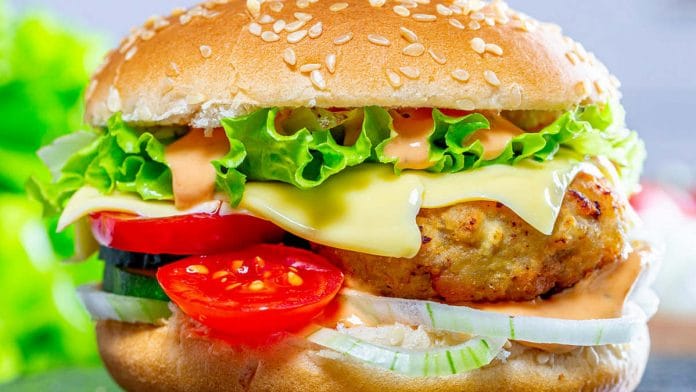New Delhi: A day after a study found “dangerously” high levels of salt and fat in fast foods sold by Domino’s, McDonald’s, Subway and Burger King, among others, the country’s food regulator, Food Safety and Standards Authority of India (FSSAI), Wednesday said the process to bring in a law to “regulate the sector” will take its own time.
“We acknowledge that there are health concerns attached with snack brands and junk food items. This is the reason behind our efforts on creating a law to regulate the sector, but the process takes its own time,” Pawan Agarwal, chief executive officer (CEO), FSSAI, told ThePrint.
The law in question is the Food Safety Standards (labelling and display) Regulations, which was first proposed in 2013, but even after six years, it awaits official notification.
Asked about the status of the law, Agarwal said the “due process to notify the draft (of the law) is on”.
Agarwal said they had received more than 500 suggestions on the draft released in July. In the draft, the FSSAI had proposed putting “red-coloured” labels on the front of the packets of products with high salt and fat content.
“We have processed half of the comments, but a lot more needs to be done and debated. After we re-work the draft, it will be sent to the scientific panel for clearance followed by another scientific committee and then to the government (health ministry) for issuing notification. The due process will be followed,” he added.
ThePrint Tuesday reported that the study conducted by the Centre for Science and Environment (CSE), a Delhi-based research and advocacy think-tank, has claimed that popular snacking brands such as PepsiCo, Domino’s, ITC, Patanjali, Hindustan Unilever, Nestle, McDonald’s, Subway and Burger King sell products with salt and fat contents much higher than the threshold set by the FSSAI.
On the CSE study, Agarwal said he would like to invite the think-tank to work with the government and help in policy-making.
Also read: Maggi case still on, but FSSAI ties up with Nestle to improve own standards
The law in the making — six years, three panels
In March 2013, the FSSAI had set up an expert committee to assess the consumption of fast food in schools. The committee recommended nutrition-labelling and also front-pack labelling of calories, sugar, saturated fat and salt.
In 2015, the food regulator set up an 11-member committee led by D. Prabhakaran, former director of the Centre for Chronic Conditions and Injuries, to assess the consumption of fat, salt and sugar in India and the health impacts. Two years later, the committee endorsed the guidelines of the 2013 committee.
Last year, after discussing with a third committee led by B. Sesikeran, former director of the National Institute of Nutrition, the FSSAI released the draft of the Food Safety Standards (labelling and display) Regulations. In the draft, it proposed front-pack labelling and also provided thresholds for ‘red-colour’ label.
In July, the draft was re-worked and released, which is now awaiting the health ministry’s notification.
What CSE study shows
The study surveyed 33 food items, which included 14 samples of packaged food such as chips, instant noodles and soup, among others, and 19 samples of fast food such as burgers, fries, sandwiches and pizzas.
The lab results, according to the study, showed that the chips category contained severely high levels of sodium (salt) and fat.
For instance: Brand Uncle Chips by PepsiCo contained 4.4 times the threshold of salt and fat. According to FSSAI’s benchmark, sodium limit is 0.25mg in 100 grams of serving whereas the total fat, which includes trans fat, is 8g.
Similarly, Haldiram’s Nut Cracker was found to contain salt 7.9 times the threshold, while the fat content exceeded the permissible limit by 5.6 times.
In the junk food category, the sample of Chicken Seekh Kebab by Subway contained salt twice the permissible limit whereas fat content exceeded the threshold by 1.7 times. Similar numbers were noted for products of McDonald’s, Domino’s and Pizza Hut.
Several studies have proved that intake of high salt (sodium chloride) is associated with high blood pressure, which in turn, raises the risk for heart disease, stroke, kidney failure and other health problems.
Also read: From McDonald’s to Patanjali, an IAS officer explains how FSSAI is making food safer






